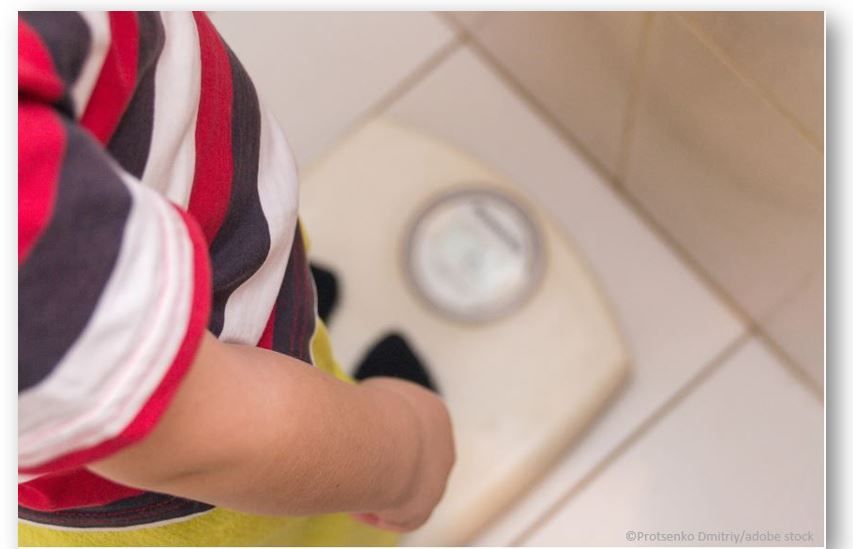- Clinical Technology
- Adult Immunization
- Hepatology
- Pediatric Immunization
- Screening
- Psychiatry
- Allergy
- Women's Health
- Cardiology
- Pediatrics
- Dermatology
- Endocrinology
- Pain Management
- Gastroenterology
- Infectious Disease
- Obesity Medicine
- Rheumatology
- Nephrology
- Neurology
- Pulmonology
Obesity in Preschool-aged Children in Sweden Increased during COVID-19, New Study Finds
Findings highlight the need for extended efforts directed to prevent childhood obesity, especially targeting lower socioeconomic areas, say study authors.

New data show that overweight and obesity in children aged 3-4 years in Sweden increased during the COVID-19 pandemic, especially among those living in areas with low socioeconomic status.
Findings come from a study published in the European Journal of Public Health that examined changes in body mass index (BMI) status before and during the COVID-19 pandemic among 25 049 children aged 3-5 years who underwent regular health checks at child health centers across Sweden.
“Our results expose the need for extended efforts directed to prevent childhood obesity, especially targeting lower socioeconomic areas,” wrote authors led by Anton Holmgren, a research associate in pediatrics at Sahlgrenska Academy at the University of Gothenburg.
Previous studies have shown rises in obesity in children during the COVID-19 pandemic, however, they mainly focused on older children and adolescents or countries with tighter societal restrictions than Sweden during the lockdown, according to researchers. For example, activities at the country’s preschools and schools for children up to the age of 16 continued to operate as usual.
Holmgren and colleagues took growth measures for all the participants at 3-, 4-, and 5-years of age. The team measured socioeconomic variables using an established method, the Care Need Index (CNI), which classifies expected care requirements based on the following:
- Education level
- Proportion of unemployed persons or those in labor-market programs
- Proportion of single parents
- Proportion born outside the western world
For the purposes of the study, underweight was defined as a BMI of 25 kg/m2, obesity as >30 kg/m2, and normal weight as 17-25 kg/m2.
Results
Investigators observed that obesity in 3-year-olds was more prevalent in girls (2.8% before and 3.9% during COVID-19) than boys (2.4% before and 2.6% during COVID-19). A lower proportion of girls had a normal weight status during the pandemic compared to before (80.9% vs 82.6%; P=.049), while no difference in normal weight status was found in boys the same age (P=.977).
Among children aged 4 years, obesity increased in both boys and girls, overweight increased only in girls (11.1% to 12.8%), and underweight among boys decreased from 2.0% to 1.4%. No change in BMI was observed in participants aged 5 years, according to the results.
Also, a higher prevalence of overweight and obesity was observed in areas with low socioeconomic status. According to researchers, among children in the highest quartile for CNI, the proportion of 3- and 4-year-olds with overweight increased from 9.5% before the pandemic to 12.4% during the pandemic and rates of obesity increased from 2.5% to 4.4%.
“The study highlights the need for further efforts and interventions aimed at preventing childhood obesity, especially in areas of lower socioeconomic status,” said Holmgren in a University of Gothenburg press release.
Reference: Holmgren A, Durbeej N, Sollander SE, Nejat S, Fäldt A. Increased incidence of overweight and obesity among preschool Swedish children during the COVID-19 pandemic. Eur J Public Health. Published online December 8, 2022. doi:10.1093/eurpub/ckac181
Obesity Linked to Faster Alzheimer Disease Progression in Longitudinal Blood Biomarker Analysis
December 2nd 2025Biomarker trajectories over 5 years in study participants with AD show steeper rises in pTau217, NfL, and amyloid burden among those with obesity, highlighting risk factor relevance.
